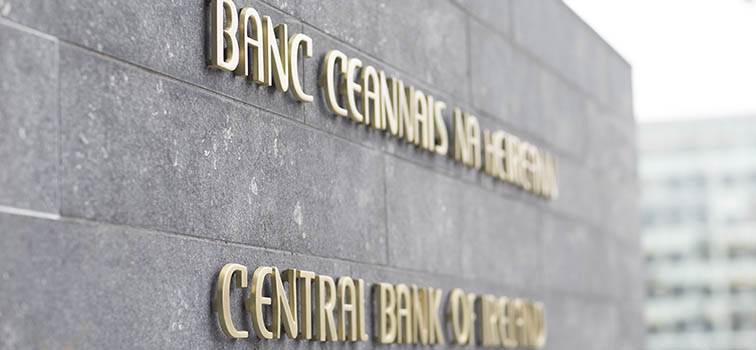Brexit will substantially alter the functioning of the UK, Irish and European financial systems - Deputy Governor, Ed Sibley
12 April 2018
Press Release

- Brexit could be one of the most significant events to affect the Irish economy and Irish financial services firms in a generation
- Loss of European passport is a material risk for firms providing cross-border financial services
- Regulatory approach to proposed transitional arrangements outlined
At the DCU Brexit Institute today, Deputy Governor of Prudential Regulation, Ed Sibley spoke about the potential impact of Brexit on the Irish economy and the financial services sector, focussing on the risks to firms of a hard or chaotic Brexit.
He said that: ‘as regulators, we see enormous challenges ahead, both for ourselves and for the firms that we supervise’ adding that the Central Bank is committed to meeting these challenges. ‘We have increased headcount, recruited heavily and re-allocated senior and experienced resources from other important tasks to ensure that we deliver effectively, efficiently, predictably and in a timely fashion.’
The Central Bank plays an active role in the European framework of regulation and supervision. Within that framework, we operate a robust and effective approach to supervision and engage closely with the European Supervisory Authorities to agree European-wide approaches to key topics arising from concerns around regulatory arbitrage. Mr Sibley said ‘Brexit will have a significant effect on financial services regulation in Europe, both in terms of how policy is developed, but also on how we oversee the financial services sector in a new reality where the UK is likely to be outside of the European system but still a very important player in global financial markets.’
He said that from ‘an economic and regulatory perspective it is desirable, given the size and role of London as a financial centre, that some form of sustainable link between the EU and the UK is found. Indeed, it is important that the EU continues to play an active and engaged role in international financial markets and does not seek to introduce barriers to well-functioning markets where key risks can be managed appropriately.’
Mr Sibley highlighted the risks, in the event of a hard Brexit, to the Irish financial services system in the event that UK firms can no longer avail of the financial services passport to offer their services into Ireland and Irish firms can no longer passport their business into the UK. He said the ‘inability to passport between the UK and the rest of the EU post Brexit will be particularly impactful in the Insurance and Funds spheres given the level of business conducted on this basis between Ireland and UK currently.’
He added that the ‘potential loss of EU authorisation will affect the ability of UK and Gibraltar-based insurance undertakings to continue performing certain obligations for EU policyholders (and vice versa) and will impact the service continuity of contracts concluded before the UK leaves the EU. Without action, there are risks that UK and Gibraltar-based insurers passporting into Ireland will lose their ability to continue to provide insurance cover, including collecting premiums, making mid-term alterations and negotiating and settling claims on any outstanding insurance contracts - ranging from long-term life insurance policies to annual motor insurance contracts - taken out prior to the UK’s departure from the EU.’
On transitional arrangements he said that ‘many Brexit related changes and applications involve transfers of existing business lines, new licences and growth plans. So Day 1 may not be the destination, it may be a staging post on the path towards the time - let’s refer to this as Day 2 - when the full post-Brexit business arrangements of the firm are operational. In the event that the proposed transitional arrangements are ratified, this transfer and growth may take place over an extended period. So, we are open to understanding, on a case-by-case basis, both existing and applicant firms’ plans for navigating the paths between their Day 1 and Day 2 arrangements.’
Mr Sibley concluded by providing details of a recent survey of regulated insurance companies’ preparedness for Brexit, ‘Of the 197 responses we received, 38 companies deemed that Brexit would have a high impact on their business model and 12 a medium impact. The remaining 147 – almost three quarters - think Brexit will have little or no impact on them. Given the level of uncertainty and the range of challenges we have heard about today, this is an astounding number.’